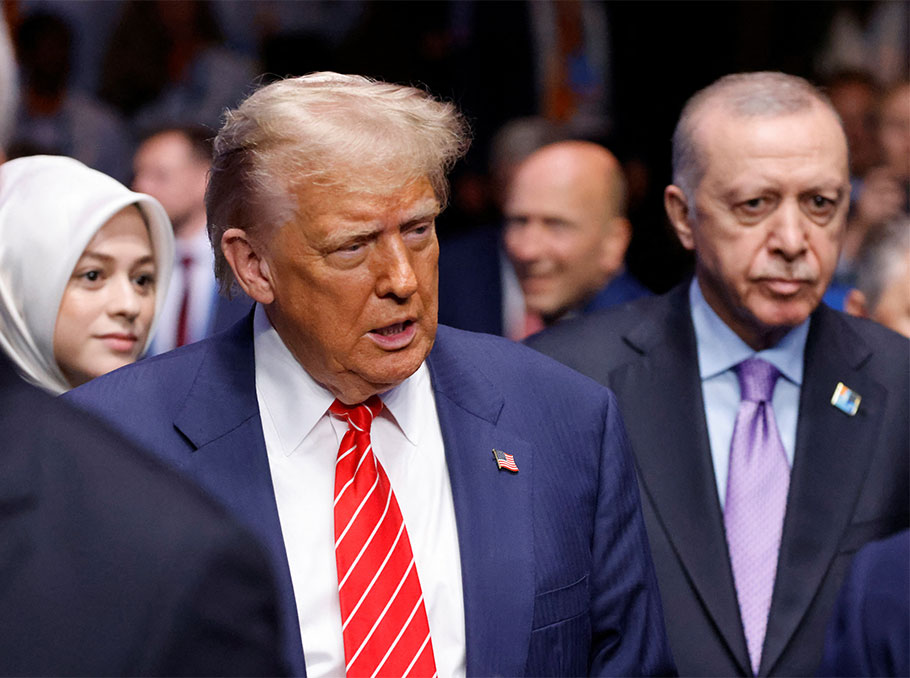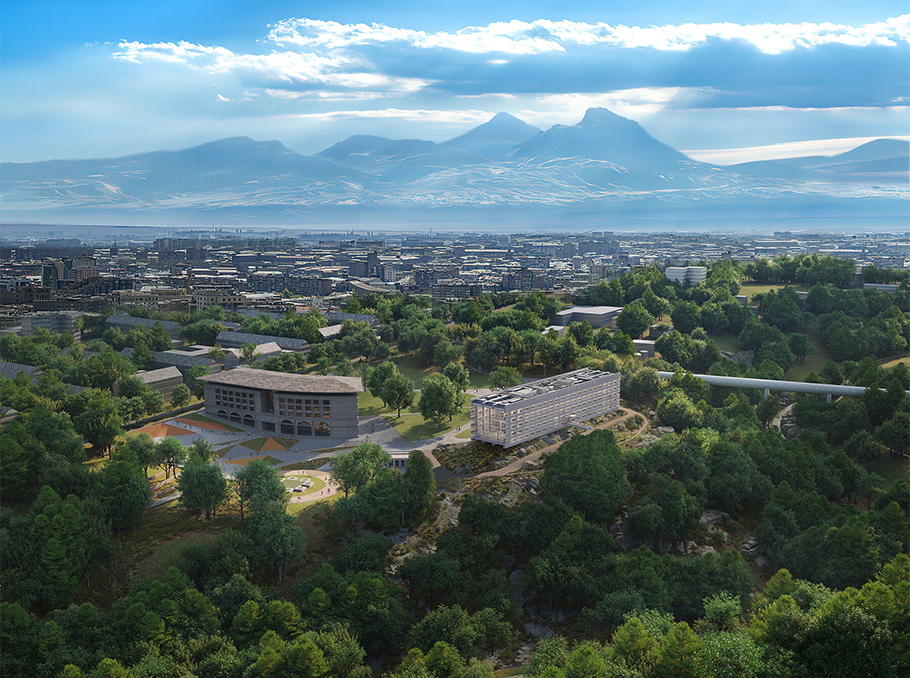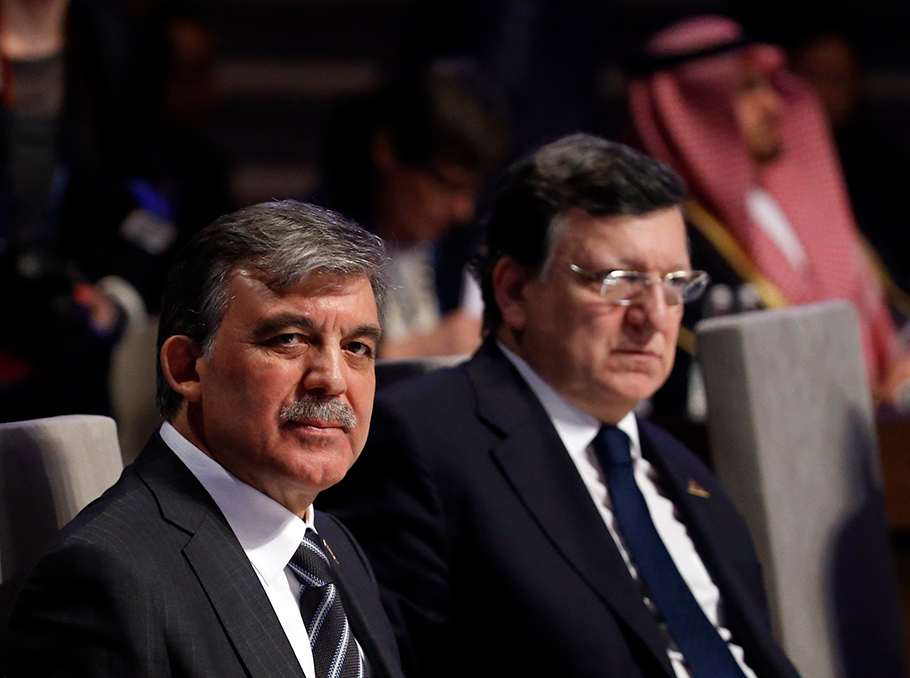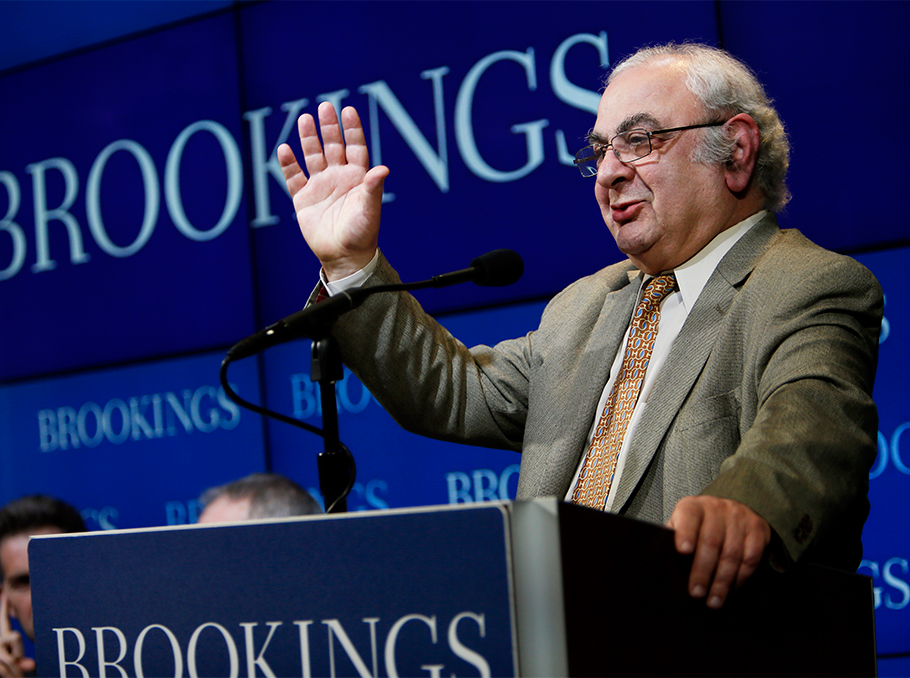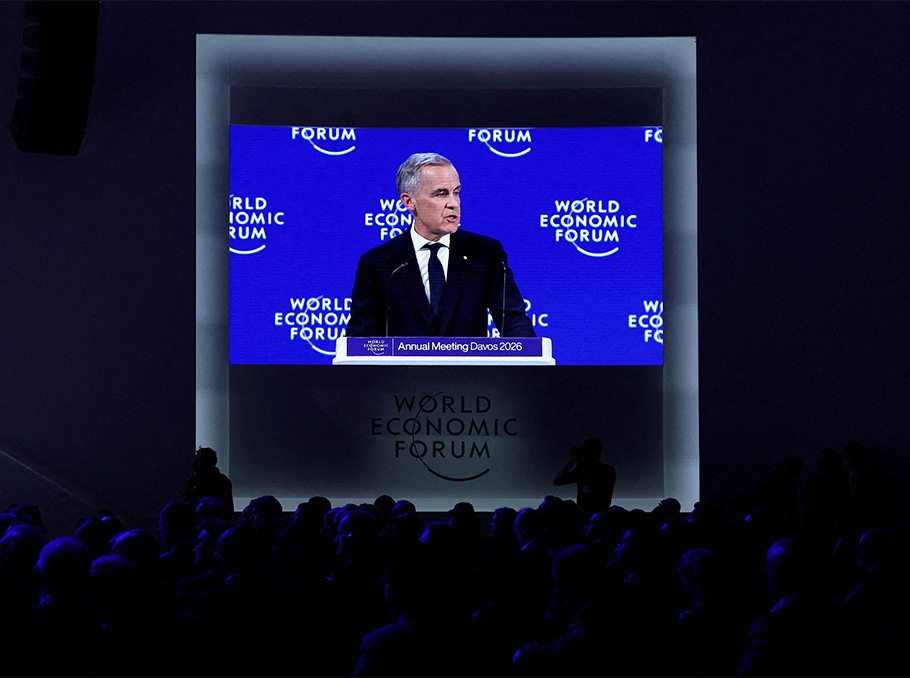Ahmet Davutoğlu is a former prime minister (2014-16) and foreign minister (2009-14) of Turkey.
Ahmet Davutoğlu
NATO’s just-completed summit in The Hague came at a time of extraordinary tension. Since returning to the White House, Donald Trump has repeatedly accused Europe of free riding on US defense spending, raising serious concerns about the health of the Atlantic alliance. His decision to bomb Iran’s nuclear facilities just three days before the summit – in coordination with Israel and without informing America’s NATO allies – has only intensified those fears.
Trump’s strikes against Iran evoked memories of the post-9/11 interventions in Afghanistan and Iraq, when NATO expanded its role beyond addressing conventional military threats to include counter-terrorism operations. While the alliance supported the US-led war in Afghanistan, the invasion of Iraq was far more divisive, owing to the lack of convincing evidence that Saddam Hussein possessed weapons of mass destruction and the absence of an explicit United Nations Security Council mandate. The resulting rift prompted then-US Defense Secretary Donald Rumsfeld to draw a controversial distinction between “Old Europe” and “New Europe.”
But the current situation is even more alarming. Unlike in 2003, when the United States at least made an effort to consult its allies, Trump now keeps them in the dark. He provided no credible evidence to justify the attack on Iran, and International Atomic Energy Agency (IAEA) Director General Rafael Grossi, contradicted his claims of an imminent nuclear threat, stating just days earlier that there was no proof of a “systematic” Iranian effort to develop nuclear weapons.
Strikingly, many NATO leaders were informed of the attack only after it had been carried out. By sidelining NATO, Trump has effectively reduced the alliance to a passive observer, undermining its core principles and signaling a dangerous shift in global diplomacy. Imagine if Iran had retaliated by targeting US bases in Turkey, potentially dragging my country into war. And if a nuclear leak had occurred, endangering Turkish civilians, who would have borne responsibility?
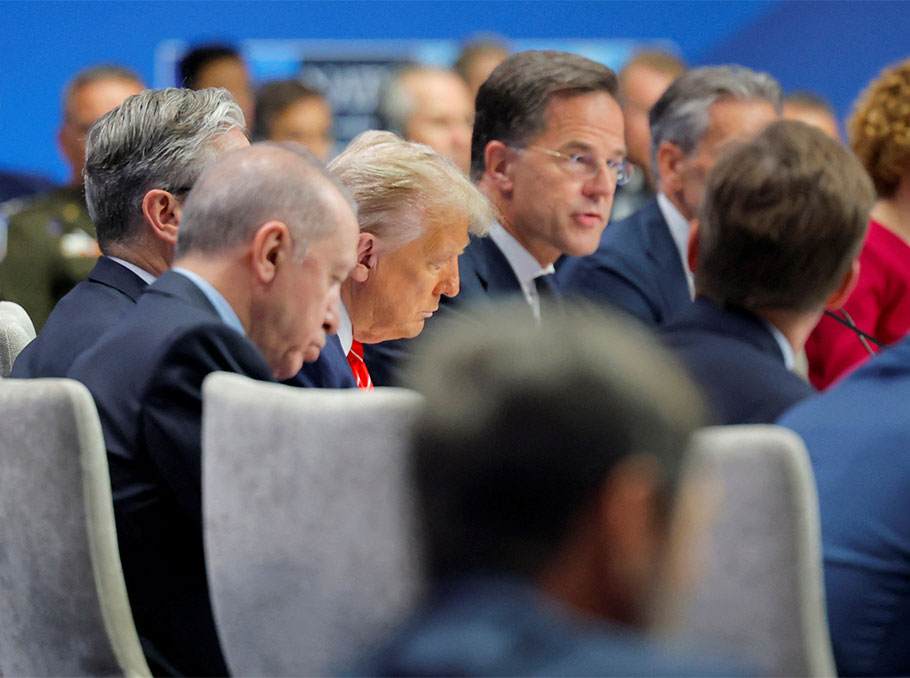
Although Israel and Iran accepted Trump’s announcement of a cease-fire, NATO members had been thrust into a dangerous situation without warning. This was particularly worrisome for Turkey, which shares a border with Iran and is highly vulnerable to the consequences of regional escalation.
Trump’s behavior has jeopardized NATO’s collective security. After all, there is no guarantee that Israel will not violate the ceasefire, as it did in Gaza in March. NATO members must now confront a fundamental question: Can the alliance survive if member states may launch unilateral military action that puts others at risk?
The US may have legitimate evidence that Iran violated the Non-Proliferation Treaty, or was just about to do so. But if that were the case, the proper course would have been to present the evidence to the IAEA and pursue a coordinated response through the UN Security Council. Alternatively, the US may have assumed that Iran would not retaliate and saw the attack as a way to force the Iranians back to the negotiating table. But talks between the two countries were already set to resume before Israel’s intervention derailed them. A third explanation is more cynical but may be true: the attack was meant to divert attention from Israel’s brutal war in Gaza.
Whichever explanation proves true, Trump’s actions could have far-reaching consequences for NATO, and the alliance’s future could depend on how its leaders respond. Turkish President Recep Tayyip Erdoğan, for example, must clearly outline the risks that regional instability poses to NATO’s collective defense posture – especially given Turkey’s proximity to Iran. As leaders of countries with permanent seats on the UN Security Council, French President Emmanuel Macron and UK Prime Minister Keir Starmer could play a vital role in strengthening coordination between NATO and the UN.
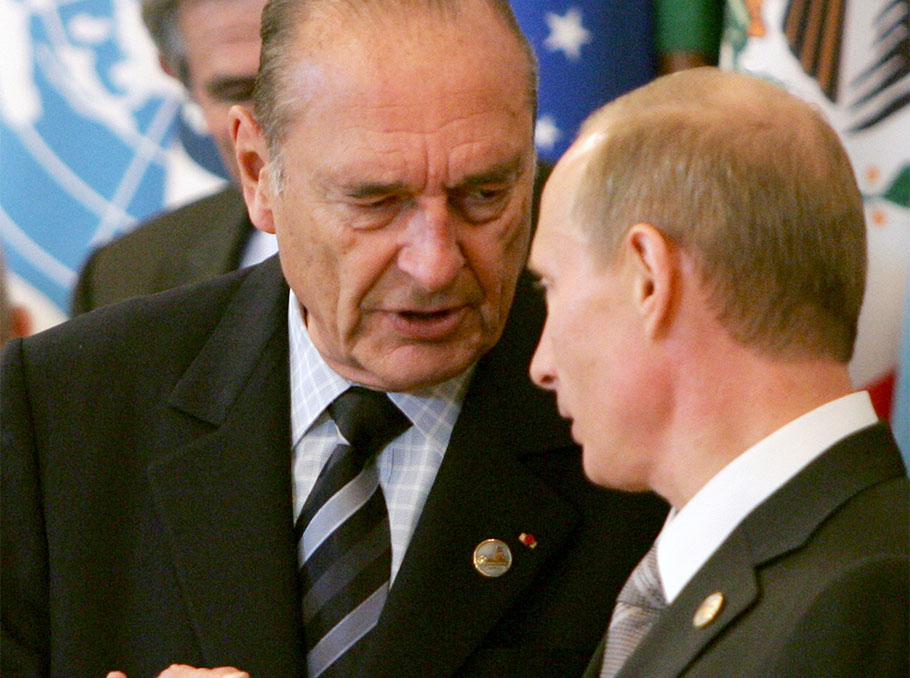
Likewise, German Chancellor Friedrich Merz will be instrumental in shaping NATO-EU relations, while Norwegian President Jonas Gahr Støre and his Finnish counterpart Alexander Stubb could help reinvigorate diplomacy and restore the alliance’s moral compass. Ultimately, NATO Secretary-General Mark Rutte’s effectiveness will largely depend on leaders’ commitment to pursuing rational, law-abiding security policies.
Even beyond the immediate Iran crisis, NATO finds itself at a crossroads. The Hague summit may ultimately be seen as a defining moment – one that will determine whether the alliance can remain the world’s most powerful defense organization, grounded in its members’ shared concerns and contributions, or is destined to become a mere instrument of US-Israeli strategic interests.
If I were in office today, I would use the summit to highlight Israel’s growing aggression and the security risks facing Turkey as the only NATO member in the region. I would ask Trump whether, in his “America First” hierarchy, NATO allies now rank below non-member Israel. Any leader willing to pose that question would take a principled stand against reckless military adventurism – and might just help save the alliance itself.
Before the Iraq War, French President Jacques Chirac and German Chancellor Gerhard Schröder were dismissed as representatives of “Old Europe” for opposing US intervention. Had their warnings been heeded, the catastrophic costs of the war might have been avoided, and Iran’s regional influence would likely not be as significant as it is now.
History has shown that wars launched before exhausting every diplomatic avenue lead to ruin for all involved. Russia’s miscalculations in Ukraine serve as a grim reminder that while starting a war is easy, ending one is far more difficult.
Today, as Trump’s actions threaten further erosion of hard-won international laws, European leaders must push back. If NATO fails to uphold the rule of law, it risks forfeiting its role as the cornerstone of global security. The alliance’s fate – and the future of global stability – will hinge on whether its leaders insist on pursuing peace rather than confrontation.
Copyright: Project Syndicate, 2025.









